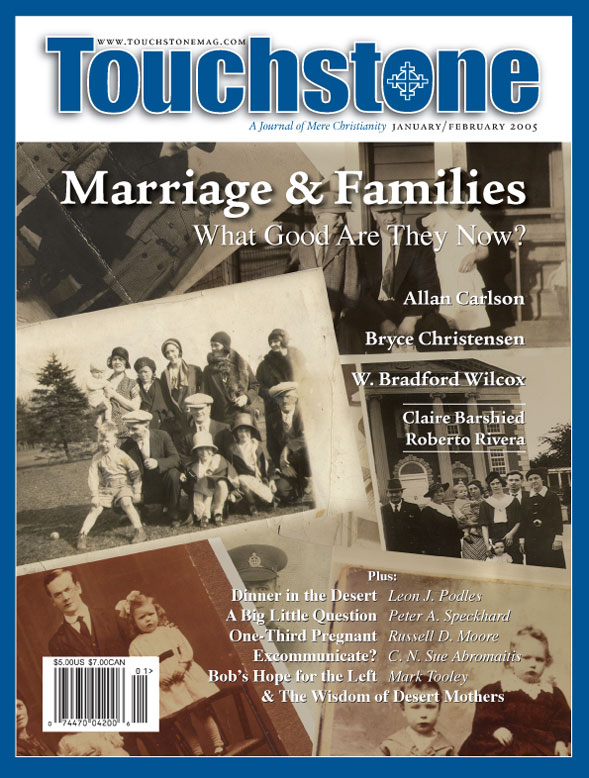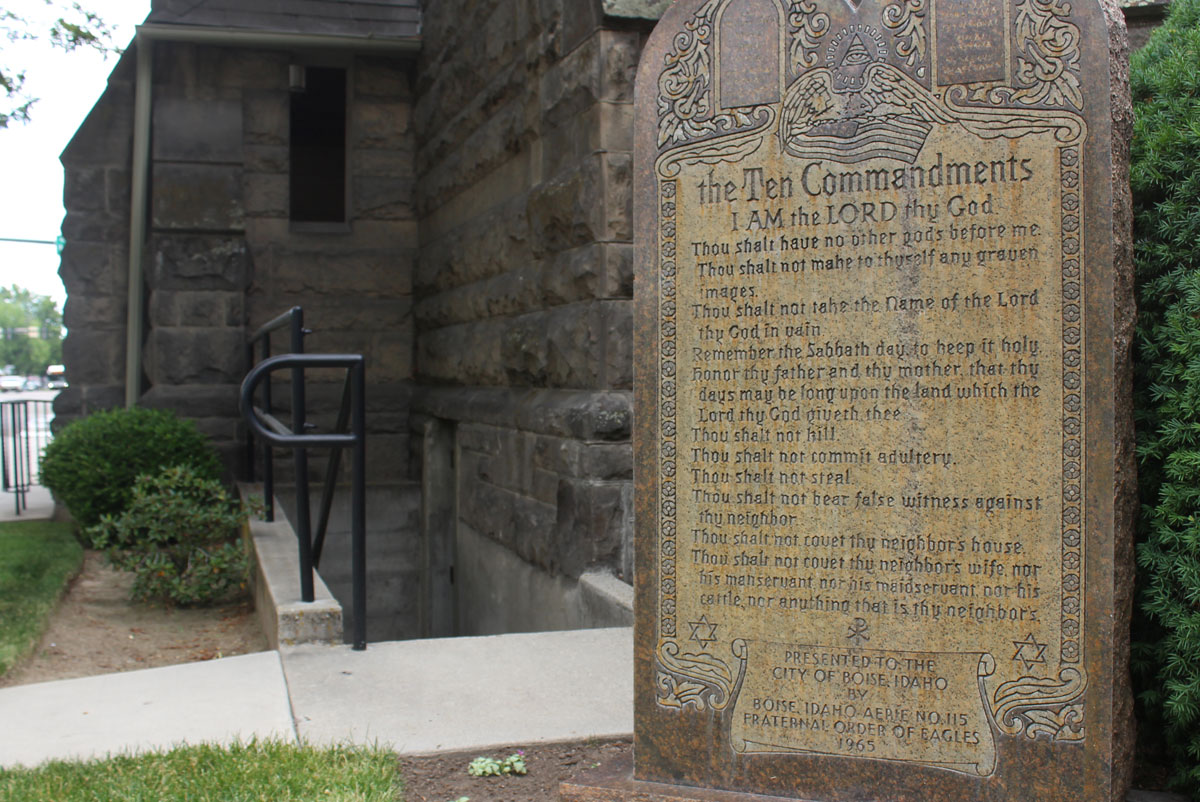Desperate Steps for Wives
Roberto Rivera on Television Wives & Suburban Choices
Given the evanescence of most mass culture, a sudden change in the fortunes of the companies that create and market the stuff shouldn’t come as a surprise. Still, ABC’s rise in the ratings is, in the words of everyone’s favorite breathy, machine-like voice, “impressive, most impressive.” Its “reality show,” Extreme Makeover: Home Edition, attracted nearly as many viewers as CBS’s Survivor. Lost, its atmospheric, slightly disorienting drama about the unlikely survivors of a horrific plane crash, is building not so much an audience as a cult, with me as one of the adherents.
But the undisputed jewel in ABC’s tiara is Desperate Housewives. Last Sunday, it drew 25 million viewers, which left it, in the words of Lisa de Moraes of the Washington Post, “breathing down the neck of CBS’s CSI.” Desperate Housewives is about the residents of “Wisteria Lane,” an idealized-to-the-point-of-irony suburban enclave. While all of Wisteria Lane’s denizens can be called “desperate,” each of them is desperate in her own way.
There’s Susan (Teri Hatcher), a single mom whose husband left her for another woman and then had the nerve to quote Woody Allen—“the heart wants what it wants”—as justification for his actions. Bree (Marcia Cross) is an almost pathological perfectionist with eyebrows that are, if such a thing is possible, even scarier than Nicole Kidman’s.
Lynette (Felicity Huffman) is a former career woman with four kids under the age of six, including twins who, instead of Ritalin, need Versed. Finally, there’s Gabby (Eva Longoria), a former model who married a man who promised her “everything [she] always wanted.” When she realized that she “wanted the wrong things,” she punished the fiend for keeping his promise by having an affair with the teenaged gardener.
A term that keeps coming up in discussions of Desperate Housewives is “post-feminist.” Does anyone know what that means? I don’t. The same term was applied to Ally McBeal, whose titular character was a single, neurotic, promiscuous, professional woman living in a big city (Boston). A term so broad that it encompasses both a thing and its near-opposite isn’t very useful. A more promising approach, if we can avoid making it sound like a conspiracy, begins with noting that several of Desperate Housewives’ creators are gay men.
Desperate Sexuality
In his essay about HBO’s Sex and the City, Lee Siegel, the New Republic’s television critic, called that show, whose creators were also gay men, an “ingenious affirmation of a certain type of gay-male sexuality.” The sexuality, and, by extension, the “relationships” that flowed from it, wasn’t domesticated, committed, and “safe,” i.e., the kind that reassures heterosexuals. Instead, it was “raw, rough, promiscuous, [and] anonymous.” That young women saw themselves in the antics of Sex and the City’s Bradshaw and company was “the biggest hoax perpetrated on straight single women in the history of entertainment.”
Maybe, just maybe, something similar is going on in Desperate Housewives. Perhaps all of the “desperation” reflects the creators’ own misgivings about domesticity and the consequences of taking “forsaking all others” and “until death do you part” seriously. Notwithstanding all the rhetoric about loving and stable relationships, there isn’t any substantial evidence of a strong desire on the part of most gay men to marry and start families.
Even champions of same-sex marriage like Andrew Sullivan acknowledge that the gay (as distinct from lesbian) take on “forsaking all others” differs from what our wives would consider an acceptable interpretation of that phrase. Perhaps that take is reflected in the program’s perspective on marriage. Then again, to paraphrase another former HBO headliner, that’s just my speculation. I could be wrong.
What isn’t speculative is that Desperate Housewives follows in a fifty-year-old tradition of depicting suburban life, especially the lives of suburban women, as a barren wasteland. It’s a place where intelligent and capable women like Lynette wither away into madness and inconsequentionality. (Okay, I made that last word up.) This sentiment helped spawn American feminism. Graduates of Seven Sisters schools, who were among the first American women to live in the suburbs following World War II, found themselves bored out of their minds. Their unhappiness and feelings of irrelevance became books like The Feminine Mystique.
Roberto Rivera is a Fellow at the Wilberforce Forum at Prison Fellowship. His work has appeared in Books & Culture, and he is also a regular contributor to the web magazine Boundless. He is a contributing editor for Touchstone.
subscription options
Order
Print/Online Subscription

Get six issues (one year) of Touchstone PLUS full online access including pdf downloads for only $39.95. That's only $3.34 per month!
Order
Online Only
Subscription

Get a one-year full-access subscription to the Touchstone online archives for only $19.95. That's only $1.66 per month!
bulk subscriptions
Order Touchstone subscriptions in bulk and save $10 per sub! Each subscription includes 6 issues of Touchstone plus full online access to touchstonemag.com—including archives, videos, and pdf downloads of recent issues for only $29.95 each! Great for churches or study groups.
Transactions will be processed on a secure server.
more from the online archives

24.6—Nov/Dec 2011
Liberty, Conscience & Autonomy
How the Culture War of the Roaring Twenties Set the Stage for Today’s Catholic & Evangelical Alliance by Barry Hankins
calling all readers
Please Donate
"There are magazines worth reading but few worth saving . . . Touchstone is just such a magazine."
—Alice von Hildebrand
"Here we do not concede one square millimeter of territory to falsehood, folly, contemporary sentimentality, or fashion. We speak the truth, and let God be our judge. . . . Touchstone is the one committedly Christian conservative journal."
—Anthony Esolen, Touchstone senior editor








